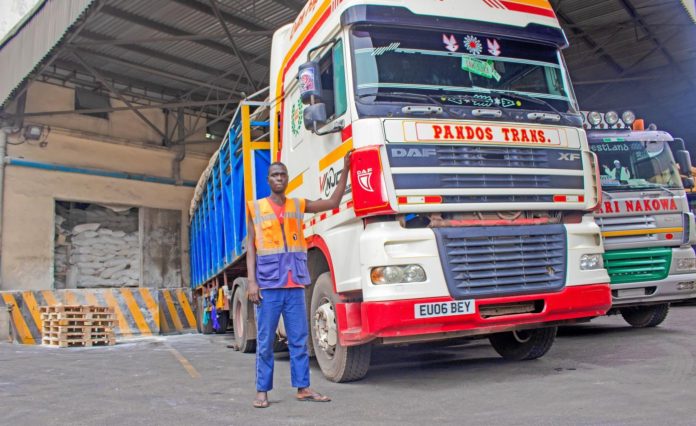By Pascal Oparada
Social Media /Tech Reporter
Nigeria’s freight logistics company, Kobo360, has secured N18 billion ($20 million) from investment banking giant, Goldman Sachs in a Series A venture capital round and N9 billion ($10 million) from Nigeria’s commercial banks.
Kobo360 operates an Uber-like app that connects trucker and companies to deliver services. It will use the funds to upgrade its platform and expand to about 10 African countries beyond operating only in markets like Nigeria, Ghana, Togo and Kenya.
Since its launch in 2017, the company has continued its growth offerings and venture capital backings and claims to have over 10,000 drivers and trucks operating on its app.
It top clients include Honeywell, Dangote, Olam, Unilever and DHL.
Apart from customer focus, founders Ife Oyedele II and Obi Ozor have prioritized serving the company’s drivers. They offer the company’s app on languages common to the drivers like Hausa and Pidgin.
Kobo360 also launched its own driver working capital finance program, KoPay, KoboSafe insurance product and KoboCare: a suite of driver services from HMO packages to family tuition assistance.
The startup is part of a growing e-logistics and transport space in Africa linking on-demand apps to mobile-based connectivity to move people and goods around the continent more effectively.
In e-logistics freight delivery, two startups, Kobo360 and Lori Systems, have continued to compete for investment, scale and expansion.
Kobo360 moved into Lori Systems’ Headquarter country Kenya this year. Lori Systems expanded into Nigeria in September of 2018.
Commercial research firm MarketLine estimated the value of Nigeria’s transportation sector in 2016 at $6 billion, with 99.4% comprising road freight.
Kobo360’s CEO Obi Ozor told TechCrunch the startup would make final decisions on the 10 new countries by first quarter of 2020.
As a cross-border freight service, the company looks to benefit from Africa’s Continental Free Trade Area(AFCFTA), signed this year by all the continent’s 54 countries to reduce barriers and friction on Pan-African commercial activity.
In addition to lower costs for Kobo360’s country-to-country freight movement, the startup expects to have a voice in AFCTA’s final implementation.
“We’re going to do some policy work through the IFC so we can help shape AFCTA. The key to the deal is really logistics, so if the logistics component doesn’t work out the deal isn’t going to work,” Ozor said.
Kobo360 will use part of its $30 million funding to build out its Global Logistics Operating System, GLOS for short, a blockchain-enabled platform that will help the company transition to more supply-chain services.
According to Digest Africa’s latest ranking, Kobo360’s $20 million Series A is the 5th largest investment in an African startup this year, after Egyptian ride-hail company Svwl’s $42 million raise in June. Kobo360’s existing investors IFC, TLCom Capital and Y Combinator joined the round.
Goldman Sachs confirmed to TechCrunch its lead on the Series A. Over the last several years the U.S. based finance firm’s Africa investments have included backing for e-commerce unicorn Jumia (which recently listed on the NYSE) and leading a $52 million investment in South African fintech startup Jumo in 2018.
Goldman Sachs’ Jules Frebault named Kobo360’s ability to scale quickly over a short period of time and use of tech to improve reliability and efficiency in Africa’s logistics ecosystem as a reason for leading the Series A.
“It’s also a business model that’s replicable across multiple geographies on the continent,” he told TechCrunch on a call.
Kobo360 has a mind toward international expansion but expects to remain focused on Nigeria and Africa for now. “We’re definitely thinking global, we just want to make sure we close out our home market first, then we’ll start looking outside,” Ozor said.











